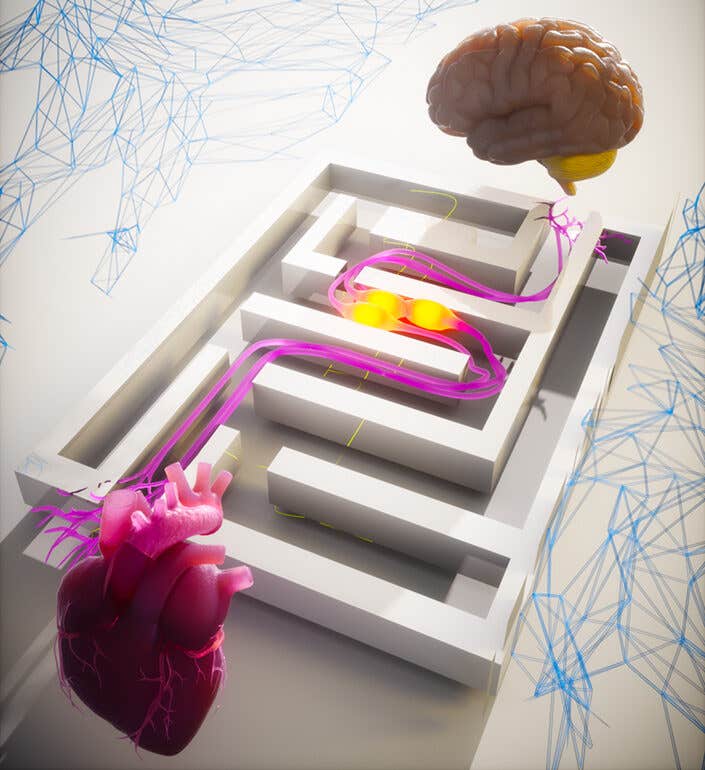Major international sleep study links sleep patterns with 172 diseases
New study links irregular sleep habits to 172 diseases, challenging old myths and highlighting the importance of sleep rhythm and timing.

Objective sleep data reveals that irregular sleep patterns—not just short sleep—are linked to higher disease risks, including liver and brain diseases. (CREDIT: iStock Images)
Poor sleep isn't just about not getting enough hours. It's also about when you sleep, how regular your schedule is, and whether your rest gets interrupted. And according to new research from 88,461 adults, all those factors add up in surprising ways—impacting not just your energy the next day, but your long-term risk for major diseases.
Objective Sleep Data Reveals Hidden Health Risks
Scientists from Peking University and Army Medical University analyzed sleep patterns using wearable accelerometers in a large group of adults from the UK Biobank. Over an average follow-up of 6.8 years, they tracked six major sleep traits—including bedtime, rhythm regularity, and sleep fragmentation—and examined how these linked with the risk of 172 diseases across the body.
In total, 92 conditions were found to have more than 20% of their risk tied to poor sleep behavior. These included well-known problems like type 2 diabetes and Parkinson’s disease, but also lesser-known links like acute kidney failure. The analysis showed that these risks weren't just about getting too little sleep—they were about the quality and consistency of your rest.
Irregular bedtime proved especially risky. People who fell asleep after 12:30 a.m. faced a 2.57-times higher risk of developing liver fibrosis or cirrhosis than those with earlier bedtimes between 11:00 p.m. and 11:30 p.m. Low stability in sleep timing from day to day—known as poor interdaily stability—raised the risk of gangrene by 2.61 times.
“These findings really shift the focus from just sleep duration to other overlooked dimensions of sleep,” said senior author Professor Shengfeng Wang.
Breaking the Myth of "Too Much Sleep"
The new study also calls into question a long-held belief: that sleeping too much can be dangerous. Previous research using self-reported data had linked long sleep—more than 9 hours per night—to conditions like stroke and heart disease. But the current study, published in Health Data Science, used objective measurements and found this claim doesn’t hold up.
Related Stories
- Irregular sleep patterns linked to early muscle aging and reduced strength over time
- Heart rate during sleep linked to early stroke, depression, and dementia risks
- People with sleep apnea are at higher risk for Parkinson's disease
Here's why: many people who say they sleep a lot actually don't. In fact, over 21% of people who self-identified as long sleepers actually slept fewer than six hours, according to their accelerometer data. They might have stayed in bed longer, but their actual time asleep was much shorter. This misclassification may have created false links between long sleep and poor health in earlier studies.
To test this theory, researchers reanalyzed the same UK Biobank data using both self-reported and objective sleep numbers. They found that the risk associations reported in older literature—such as links to depression or ischemic heart disease—often disappeared when objective measurements were used.
“Objective tools help correct for recall bias and misreporting,” Wang noted. “That gives us a clearer picture of how sleep truly affects health.”
Rhythm and Regularity Matter More Than You Think
Among the 172 diseases linked to sleep, nearly half were specifically tied to disruptions in circadian rhythm. That includes irregular bedtime, inconsistent sleep-wake cycles, and weak day-night activity patterns.
For instance, a drop in what's known as “relative amplitude”—a measure of the strength of your circadian rhythm—was linked to more than triple the risk of age-related physical decline. The same disruption has now been associated with conditions like Parkinson’s disease, where rhythm problems may influence the buildup of toxic proteins in the brain.
Many of these newly found links were verified in a second dataset: the U.S.-based National Health and Nutrition Examination Survey (NHANES). That included diseases like chronic obstructive pulmonary disease and type 2 diabetes, where associations with disrupted sleep rhythm held true even in a different population.
Behind these links may lie inflammation. Mediation analysis showed that inflammatory markers—including C-reactive protein, leukocytes, and eosinophils—played a major role in connecting poor sleep with chronic disease. This adds weight to previous findings that sleep disruption can trigger immune responses, which over time may contribute to lasting damage.
Better Sleep Measurement for Better Health
The study’s use of accelerometers—wearable devices that track movement—offers a more accurate look at sleep than traditional surveys or questionnaires. While self-reports rely on memory and perception, devices can capture detailed traits like how often you wake up during the night or how consistent your sleep schedule is.
This kind of measurement is crucial because modern life often works against natural sleep. Artificial lighting, shift work, and the always-on culture of digital screens all interfere with your internal clock. While our ancestors slept in sync with the sun, today’s patterns are anything but natural.
Now, with better tools and more data, researchers are starting to understand how today’s disrupted sleep contributes to rising rates of chronic disease.
As Professor Wang put it, “It’s time we broaden our definition of good sleep beyond just duration.”
This study suggests that improving sleep regularity and reducing fragmentation could play a bigger role in disease prevention than previously thought. By recognizing the importance of rhythm and timing, future health strategies may shift from just encouraging more sleep to encouraging better sleep—both in quality and consistency.
Note: The article above provided above by The Brighter Side of News.
Like these kind of feel good stories? Get The Brighter Side of News' newsletter.



